Dry Mouth Sprays with Antimicrobial Properties

| Key Takeaways |
|---|
| Dry mouth can lead to bacterial overgrowth, resulting in issues like bad breath and tooth decay. |
| Traditional dry mouth sprays often focus on hydration and may not provide sufficient antimicrobial protection. |
| Antimicrobial dry mouth sprays with natural ingredients like lemon extract offer both moisture and bacterial control. |
| Lemon extract's antimicrobial properties are driven by citric acid and flavonoids, inhibiting bacterial growth and supporting oral health. |
| Other natural ingredients like aloe vera, tea tree oil, and green tea extract can contribute to antimicrobial protection in dry mouth sprays. |
| Antimicrobial dry mouth sprays should complement regular dental care practices like brushing, flossing, and professional cleanings. |
| Address common concerns, including overuse, safety for children and sensitive individuals, and interactions with other medications or oral hygiene products. |
| Follow recommended usage guidelines and consult with healthcare professionals when necessary for safe and effective use. |
We all know the frustration of dry mouth - the sticky, cottony feeling that makes talking, eating, and even thinking clearly a struggle. As if the discomfort wasn't enough, dry mouth also leaves you prone to another oral health menace: microbial mischief. When saliva flow is reduced, bacteria can multiply unchecked, leading to inflammation, bad breath, and potential tooth decay. While regular dry mouth sprays provide much-needed hydration, they often neglect antimicrobial protection to control bacteria overgrowth. That's where sprays powered by natural agents like lemon come to the rescue, offering more than just moisture. Read on to learn how these oral health heroes pack a microbial punch alongside long-lasting relief.
When Dry Mouth Leaves You Prone to Microbial Mayhem
Saliva acts as a natural defence, washing away food debris and controlling bacteria in the mouth. But with chronic dry mouth, moisture levels plummet, creating the perfect breeding ground for opportunistic microbes. Common culprits like Streptococcus mutans thrive, feeding on carbohydrate remnants and secreting acid that erodes tooth enamel. Gingivitis-causing bacteria also multiply, inflaming the gums. The end result? Discomfort, bad breath, and heightened cavity risk. While hydrating dry mouth is step one, you need antimicrobial agents to control bacterial overgrowth for complete protection.

Enter Antimicrobial Heroes: Dry Mouth Sprays with a Kick
Traditional dry mouth sprays play a hydrating role but often neglect antimicrobial care. Now, innovative sprays infuse the power of natural ingredients like lemon to manage dryness and microbial growth simultaneously. These sprays harness antibacterial, antifungal, and antiviral properties to curb harmful pathogens in your mouth. With lemon extract's antimicrobial punch, they offer more robust relief and protection.
Lemon's antimicrobial prowess stems from substances within it called flavonoids and citric acid. Flavonoids disrupt microbial cell membranes while citric acid lowers mouth pH, slowing bacteria multiplication. Together, these mechanisms hinder the development of microbes like Streptococcus mutans that form plaque and erode tooth enamel. Lemon's antimicrobial actions thereby support oral health and fresh breath while controlling dry mouth.
Other natural extracts like green tea and essential oils also exhibit antimicrobial effects that benefit oral health when included in dry mouth sprays. Their synergistic actions complement lemon's microbial-taming abilities. With nature's antimicrobial arsenal on your side, you can minimize bacterial overgrowth and its unappealing effects.
| Natural Ingredient | Antimicrobial Benefits | Additional Benefits |
|---|---|---|
| Lemon Extract | Antibacterial, antiviral, citric acid | Pleasant flavour, natural freshness |
| Aloe Vera | Antibacterial, anti-inflammatory | Soothing for oral tissues, hydration |
| Tea Tree Oil | Strong antibacterial, antifungal | Fresh breath, potential gum health support |
| Xylitol | Inhibits bacterial growth | Reduces tooth decay risk, sweet taste |
| Eucalyptus | Antibacterial, anti-inflammatory | Eases breathing, refreshing sensation |
| Chamomile | Mild antibacterial, anti-inflammatory | Calming effect, potential pain relief |
| Peppermint Oil | Antibacterial, antifungal, menthol | Fresh breath, cooling sensation |
| Cranberry Extract | Antimicrobial, prevents bacterial adhesion | Potential urinary tract health benefits |
| Green Tea Extract | Antibacterial, anti-inflammatory | Antioxidant properties, potential gum health support |
| Clove Oil | Strong antibacterial, anti-inflammatory | Analgesic (pain relief), numbing effect |
These natural ingredients contribute to the antimicrobial properties of dry mouth sprays while offering additional benefits like flavour, soothing effects, and potential oral health support. Keep in mind that the specific formulation of a dry mouth spray may vary, and it's essential to check the product label for a complete list of ingredients.
Antimicrobial Sprays + Dental Hygiene
While antimicrobial sprays are oral health heroes, they shouldn’t replace proper dental care. Use them alongside regular brushing, flossing, tongue scraping, dental cleanings, smoking cessation, and limiting sugary foods. Adopting healthy habits reduces bacterial food sources and enhances your mouth’s self-cleansing mechanisms. Your dentist can also advise prescription strength options if over-the-counter antimicrobial relief falls short. With both professional guidance and antimicrobial sprays, you’ll be well equipped to nurture your mouth’s microbial balance.

Addressing Common Concerns
When considering the use of antimicrobial dry mouth sprays, it's natural to have questions and concerns. Here, we'll address some common worries you might have and provide clear, evidence-based information to put your mind at ease.
1. Potential for Overuse or Bacterial Resistance
Concern: Some may worry that frequent use of antimicrobial dry mouth sprays could lead to overuse or bacterial resistance, making the product less effective over time.
Response: It's essential to follow the recommended usage guidelines provided by the product manufacturer and, when applicable, consult with your healthcare professional. Antimicrobial dry mouth sprays are formulated to strike a balance between effective bacterial control and maintaining oral health. Most are designed for regular use without the risk of bacterial resistance. The key is moderation and using the spray as directed.
2. Safety of Natural Ingredients for Children or Individuals with Sensitivities
Concern: Parents or individuals with specific sensitivities may wonder if natural ingredients like lemon extract are safe for children or those with allergies.
Response: Natural ingredients like lemon extract are generally safe for the majority of individuals. However, it's crucial to read product labels carefully and check for any allergen warnings or age restrictions. If you have concerns about allergies or sensitivities, consult with a healthcare professional or allergist before using a product containing natural ingredients. They can provide personalised guidance based on your specific situation.

3. Interaction with Other Medications or Oral Hygiene Products
Concern: Some individuals may be taking medications or using other oral hygiene products and worry about potential interactions with antimicrobial dry mouth sprays.
Response: While antimicrobial dry mouth sprays are generally safe to use alongside other oral hygiene products, it's wise to consult with your healthcare provider if you have specific concerns. They can provide guidance based on your medical history and the medications you're taking. In most cases, using these sprays in conjunction with your regular oral care routine is not a problem, and they can complement your overall oral health.
It's important to note that the safety and efficacy of dry mouth sprays, including those with antimicrobial properties, are supported by scientific research and professional recommendations. However, individual responses may vary, so if you have unique health concerns or conditions, seeking guidance from a healthcare professional is the best course of action.

Sense Hero
Sense Hero mouth Spray UK: Quick Fix for Dryness, Vapers Tongue and Palate Cleansing
View full details

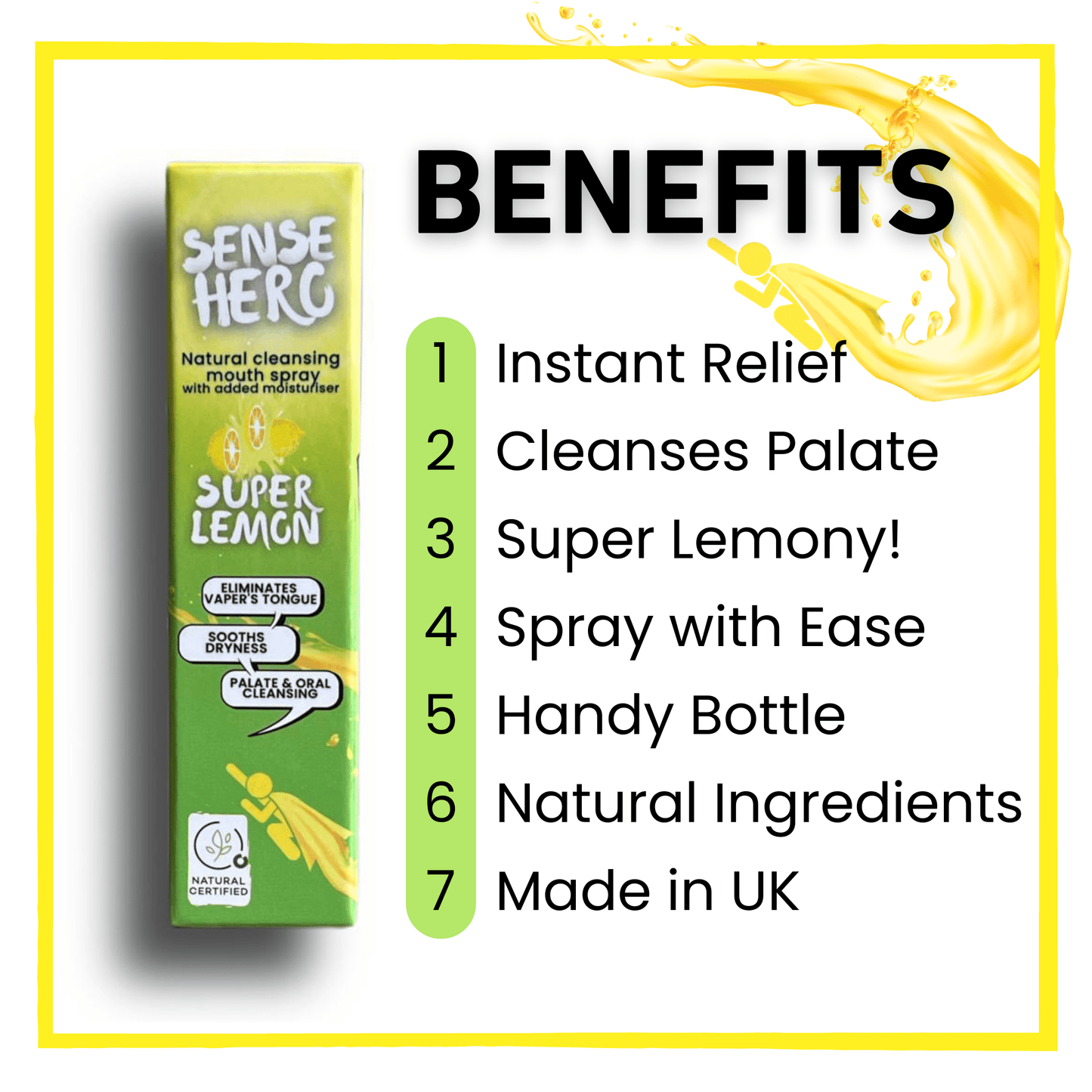
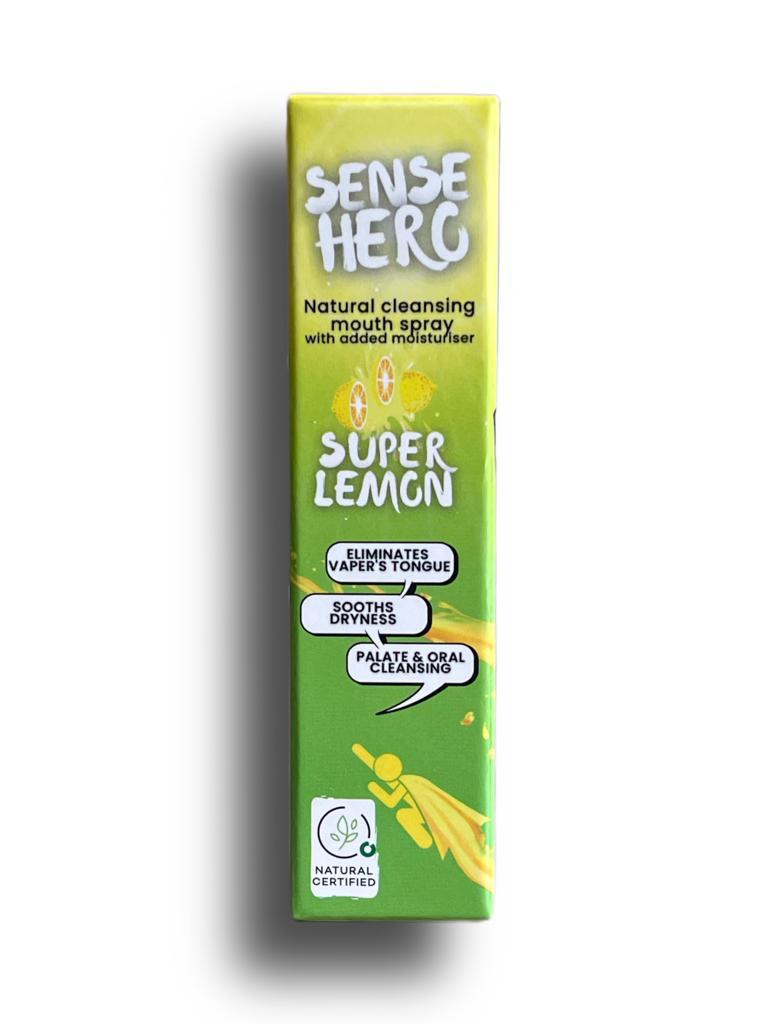
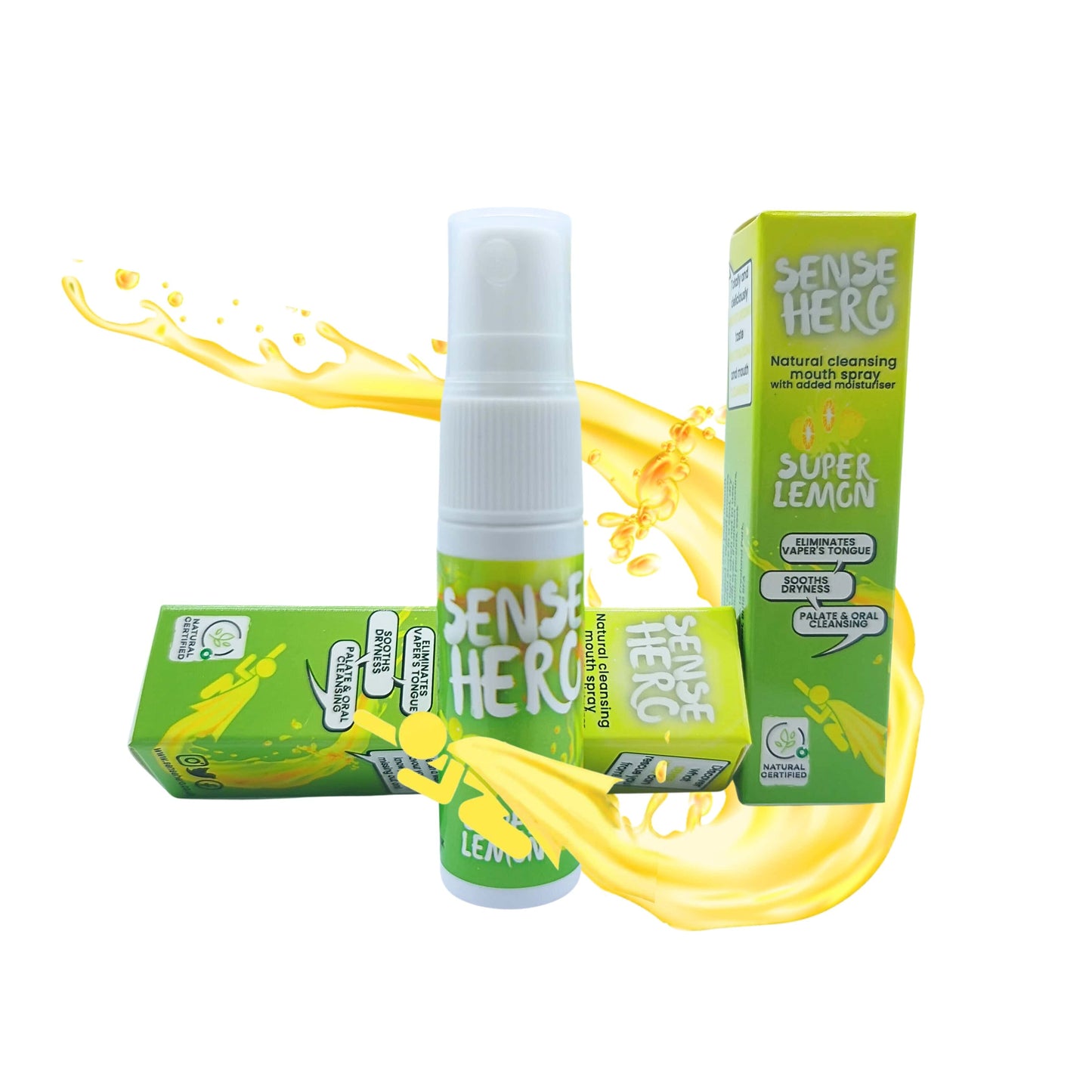
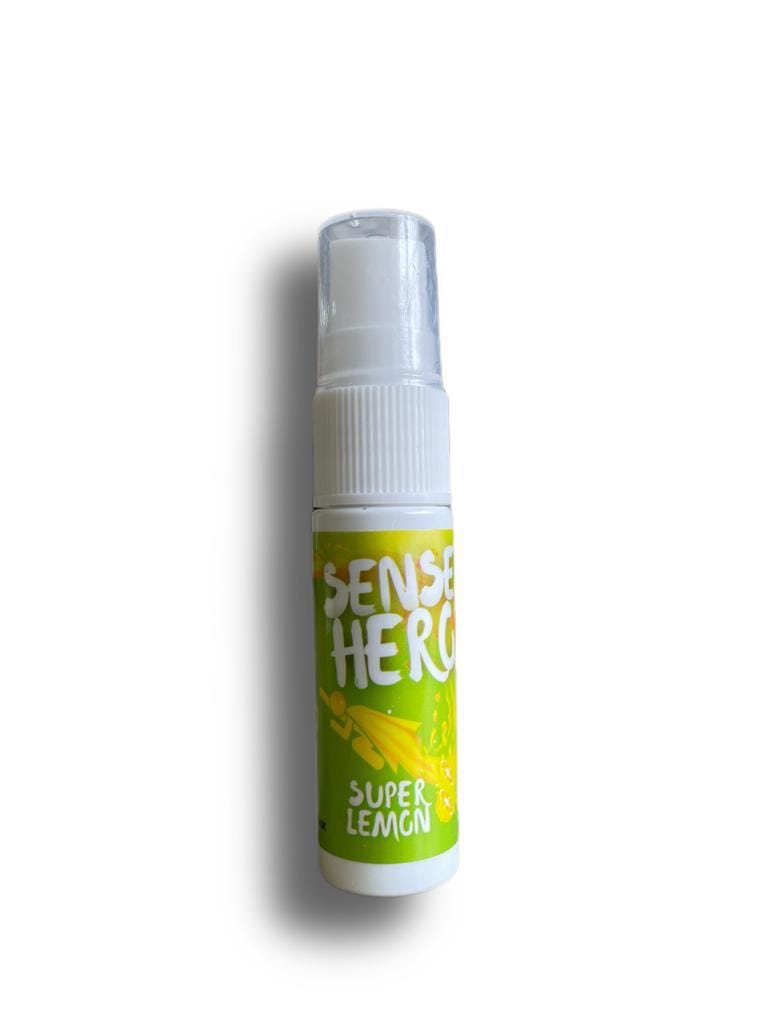
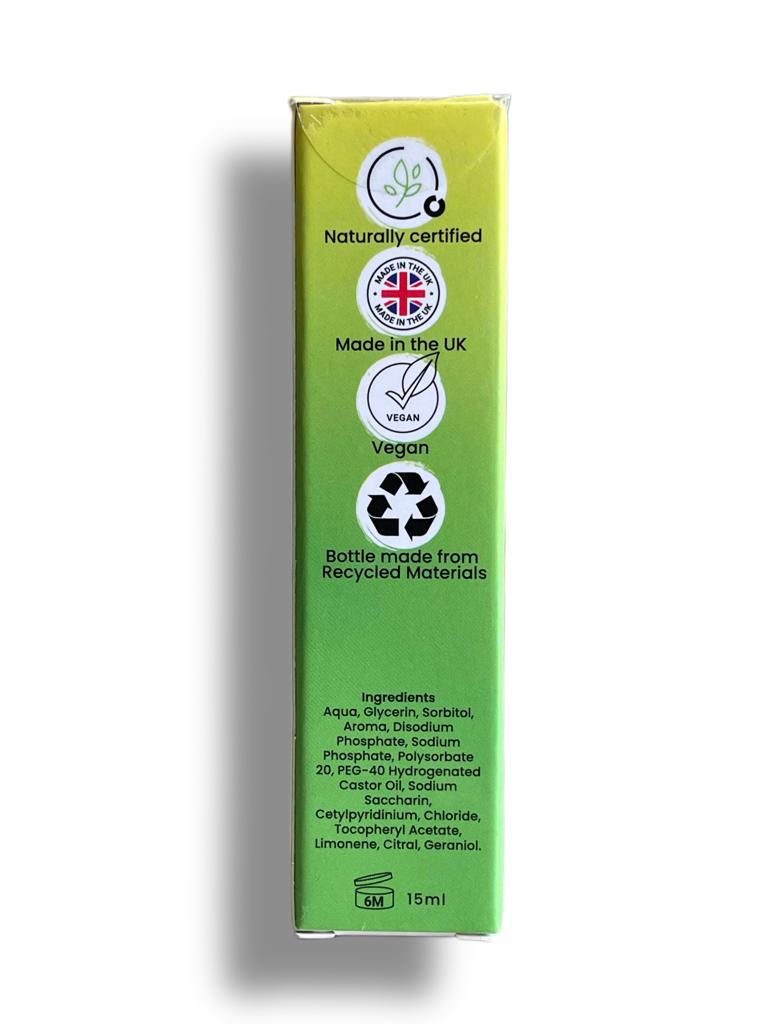

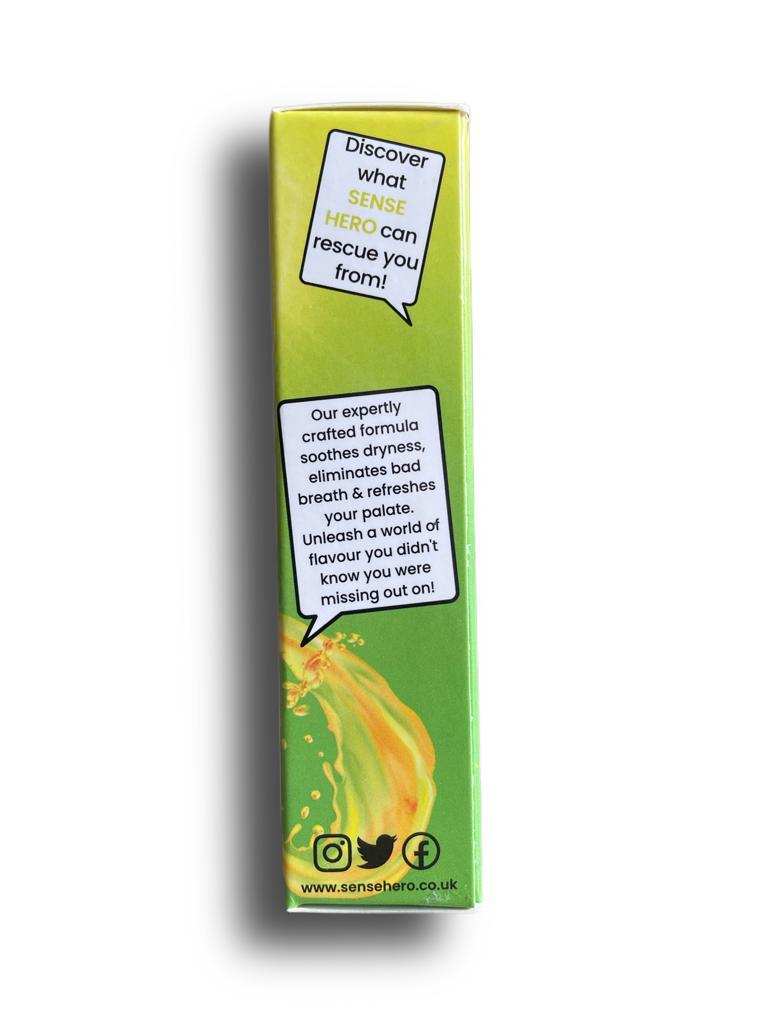
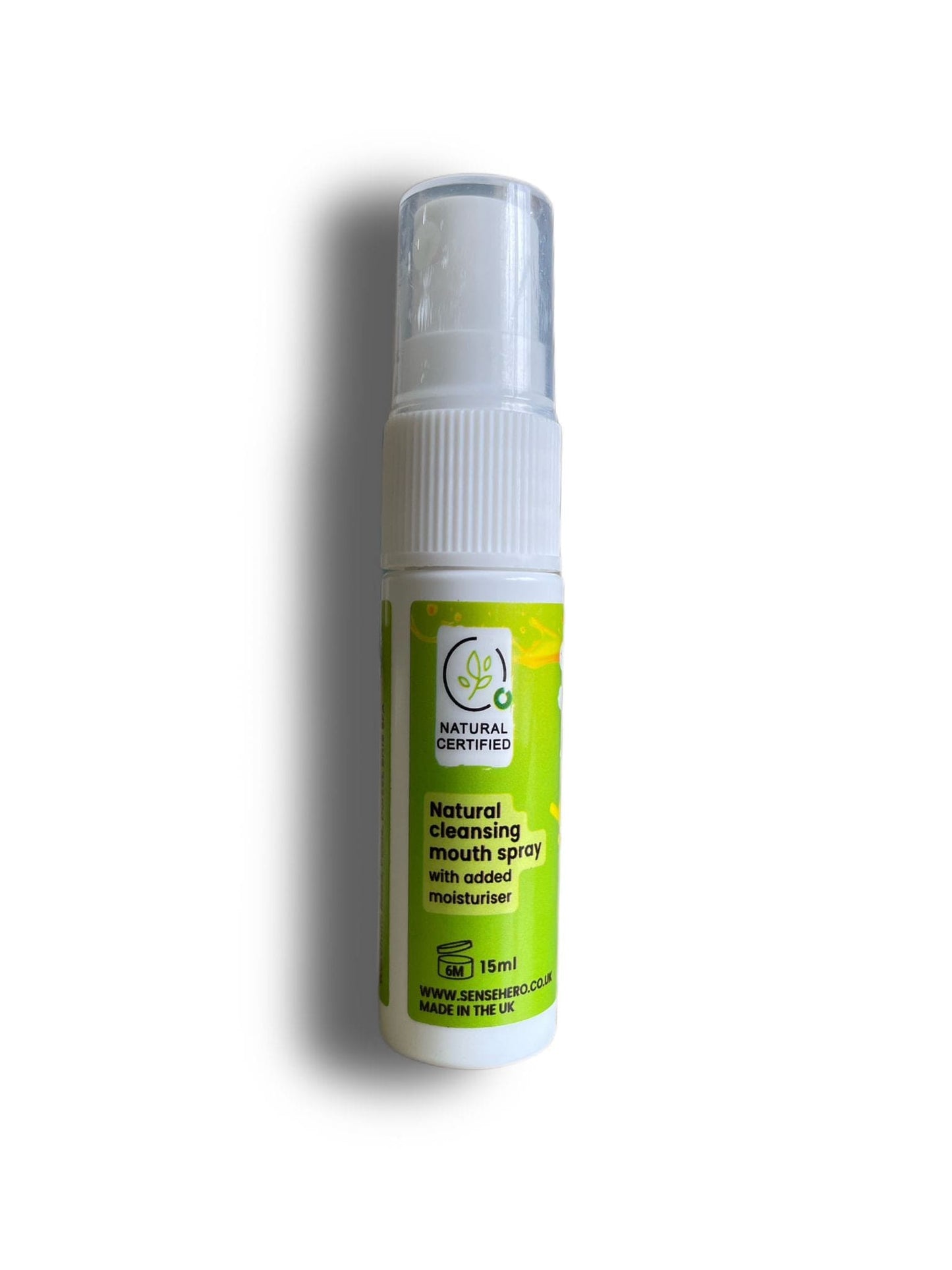

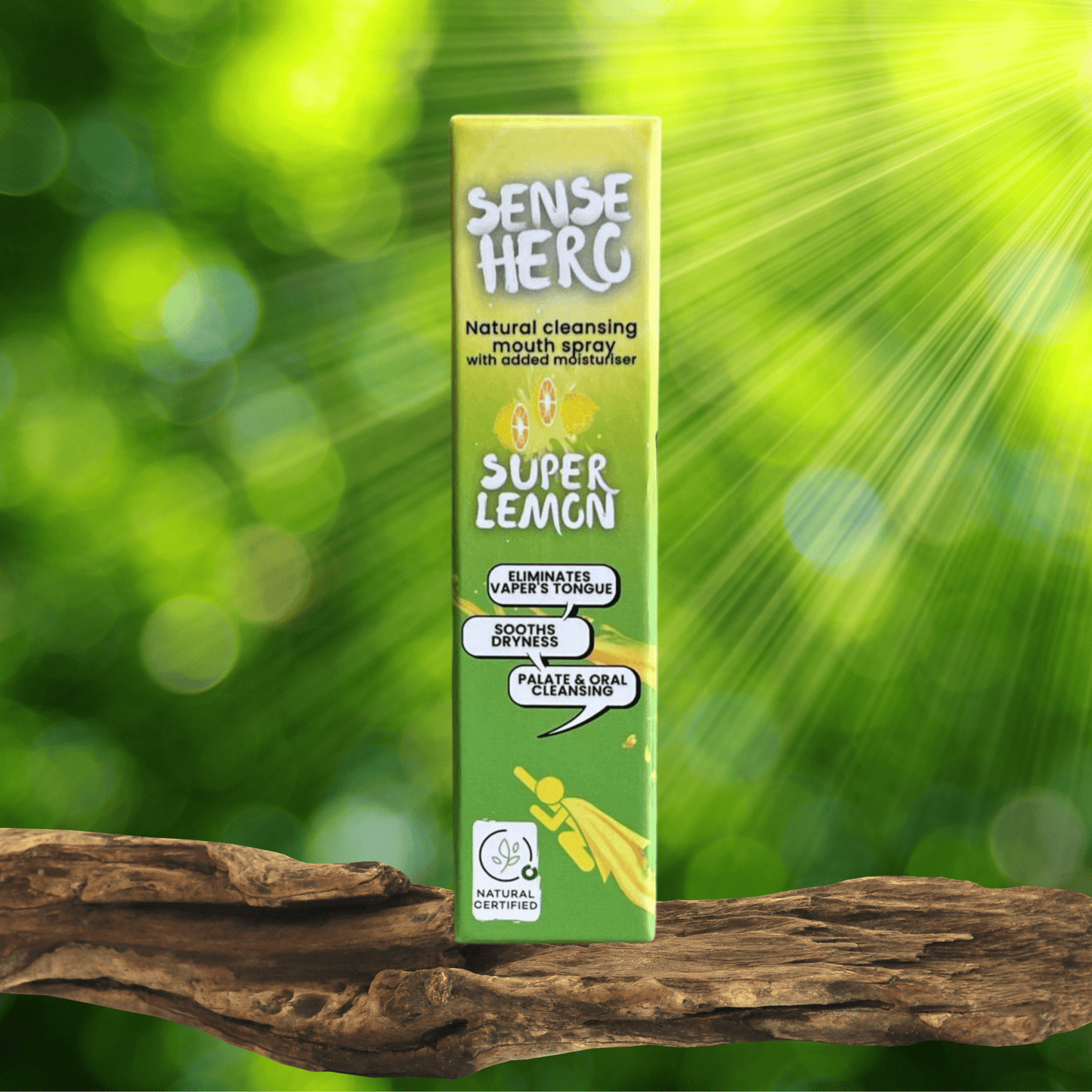
Sense Hero spray is not a medicinal product and is not intended to diagnose, treat, cure, or prevent any disease. Sense Hero Spray is designed for personal comfort.

